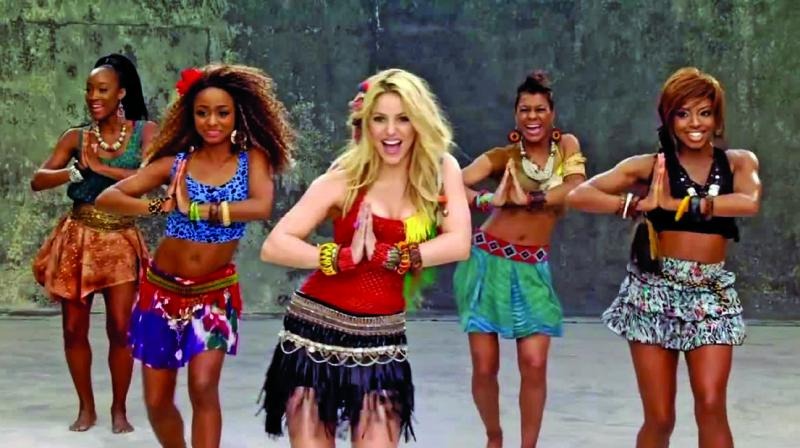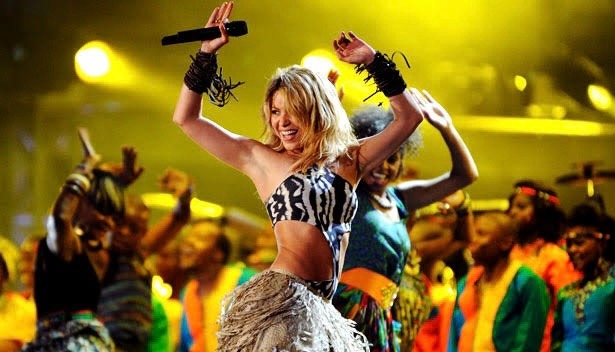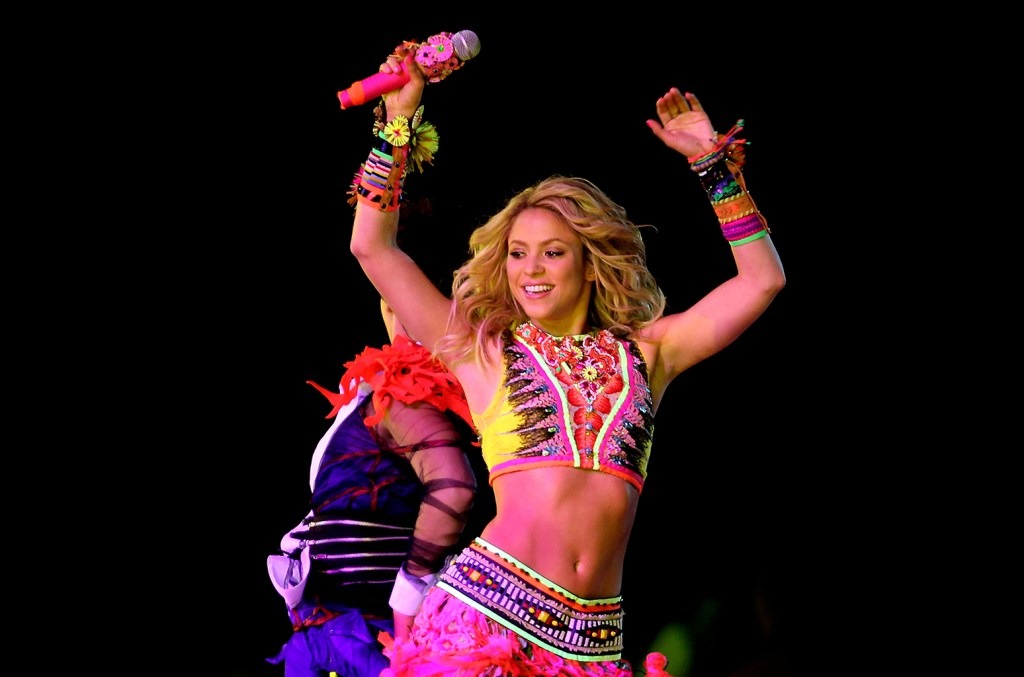For 00s kids, Waka Waka is a treasure trove of memories and nostalgia. For the rest of the world, it is an anthem that will never be outdone and possibly the best FIFA soundtrack of all time.

The FIFA 2022 opening ceremony left much to be desired. Barring K-pop sensation Jung Kook (from the insanely popular septet BTS), no mainstream musical act performed at the Al Bayt Stadium. Shakira, the Columbian songstress and Hips Don’t Lie hitmaker, was expected to perform – so was Robbie Williams, Black Eyed Peas and Nicki Minaj – all of whom pulled out of the ceremony presumably because of the human rights violations in Qatar, following pop-star Dua Lipa’s footsteps. The rather murky circumstances surrounding the Qatar World Cup deserve a Netflix documentary on their own but as far as the opening ceremony goes, it was a lacklustre affair through and through. Amid all of this, the artist who was possibly missed the most was Shakira – whose 2010 FIFA World Cup anthem Waka Waka has over 3.2 billion views and is among the top 30 most-viewed YouTube videos of all time.
The moment the opening ceremony began (followed by multiple glitches in the Jio Cinema app which made watching the first match impossible), ‘Shakira’ and ‘Waka Waka’ were top Twitter trends. Several users took to Twitter to share nostalgic memories of watching Shakira perform at the 2006, 2010 and 2014 FIFA World Cup opening ceremonies. This, despite the massive fanbase of K-pop group BTS and therefore Jung Kook (popularly known as ARMY). In fact, some ARMYs put Shakira’s Waka Waka and Jung Kook’s Dreamers in the same league of brilliance.

Moreover, Waka Waka was also played at the 2022 Fifa World Cup ceremony shortly before Jung Kook took the stage. The medley included a series of popular World Cup songs; K’Naan’s Wavin’ Flag, Ricky Martin’s The Cup of Life and Jennifer Lopez and Pitbull’s We Are One (Ole Ola).
Bottomline: Hayya Hayya is no Waka Waka
At the time of writing this story, the official song of 2022 FIFA World Cup Hayya Hayya has a paltry 36 million views. Meanwhile, the top comment with over 10,000 likes on the official music video of FIFA 2022 Fan Anthem Tukoh Taka starring Nicki Minaj, Maluma and Myriam Fares reads “The best thing about this song is that it ends”.
For the generation that grew up in pre-Jio India where Internet was a luxury and radio replays mattered more than YouTube views, Shakira’s Waka Waka (2010 WC) and then La La La (2014 WC) were insanely popular. The songs were anthems in true sense – the moment you’d hear them play on the radio, you’d vibe to the music and the beats. Shakira in the music video for Waka Waka, was a true symbol of cultural diversity – a Columbian singer collaborating with a South-African band, singing in fluent Xhosa (language native to South Africans) and sending a message of universal love and togetherness.
Waka Waka also ignited controversy in 2010 when a few African groups voiced their displeasure with FIFA for choosing a non-African artist to perform the official song. If the song was released today, perhaps it will be slammed for cultural appropriation too. In fact, the song was also hit by plagiarism allegations as it seemed to borrow heavily from the original Cameroonian song “Zamina mina (Zangaléwa)” by Golden Sounds.
Despite that, even in 2022 Waka Waka continues to be massively popular on both YouTube and music platforms like Spotify. It has truly transcended eras and managed to retain the popularity it enjoyed in days when social media didn’t exist. Add to it the Columbian songstress’ electrifying performance at FIFA 2010 opening and closing ceremony accompanied by dancers dressed in traditional African clothing. In fact, Waka Waka recently became a viral TikTok trend and continues to be a popular audio used for memes even on Instagram Reels.
Barring a few, not many songs have managed to retain their popularity and mass appeal quite like Shakira’s soul-stirring anthem which has multi platinum certifications and even diamond certifications across countries. For the 00s kids, growing up to realize their favourite Waka Waka not only promotes cultural appropriation but is also heavily plagiarised was bitter-sweet, much like entering adulthood which comes with the sad realisation that the world is not as rosy as it seemed to us in childhood. With BTS’ Jung Kook stepping in, the Gen Z kids who love all things K-Pop will perhaps, also be surprised when they find out about the human rights violations and the murky circumstances in which the 2022 FIFA World Cup is being organised. Thanks to the Internet, many are already familiar with it but others are yet to swallow the bitter pill. Before Waka Waka, it was Ricky Martin’s The Cup of Life (1998 World Cup) that dominated the radio and TV airwaves. With each passing decade, the idols will come and leave as newer, younger faces fill in their shoes. However, only a few anthems like Waka Waka are remembered and missed 12 years after their initial release which, needless to say, is no mean feat.

Cultural Impact of Waka Waka
Besides nostalgia and memories, Waka Waka seemed to make a strong case for world peace and harmony but not in the way beauty pageant contestants do. It was not preachy and did not demonize anyone – it used the visual medium perfectly with juxtaposed images of high-octane football matches with kids across the streets playing football. It truly embodied the spirit of FIFA and made football seem like a unifying force that would bring the world together. Of course, in the present context this is far from true given how tensions between rival countries are at an all-time high but in early 10s, the anthem was harbinger of hope for the coming decade.
The cultural impact of Waka Waka was such that following 2010, FIFA made a conscious (presumeably) decision to include cultural elements of the Host country in the Official World Cup song as well as the music video. In fact, after 2010, official songs also had singer and artists from host country collaborating with International stars. The 2014 World Cup track We Are One: Ole Ola had many elements of native Brazilian culture in its video and a singer from the host country Brazil, Claudia Liette, collaborating with the international artists – JLo, Pitbull. This trend continued in 2022 World Cup with Lebanese singer Myriam Fares featuring in the Official Fan Fest song next to Nicki Minaj and Maluma.

Waka Waka appropriated African culture – one criticism it simply cannot defend itself against. But thanks to its popularity, in the future World Cup songs, the culture of the Host country became an integral part of the anthem as well as the music video. It taught FIFA and therefore other Internation sporting tournaments an important lesson – representation and inclusion of diverse voices is always a good idea – morally, ethically and even financially.
This, alone, is the Waka Waka’s biggest win – making diversity and inclusion a part of sports – something which only the Olympics came close to achieving.
For the 00s kids, Waka Waka is a treasure trove of memories and nostalgia. For the rest of the world, it is an anthem that will never be outdone and possibly the best FIFA soundtrack of all time.
Deepansh Duggal is an entertainment, pop-culture and trends writer based in New Delhi. He specializes in op-eds based on the socio-political and gender issues in the world of entertainment and showbiz. He also writes explainers and occasionally reviews shows in the OTT space. He tweets at @Deepansh75.